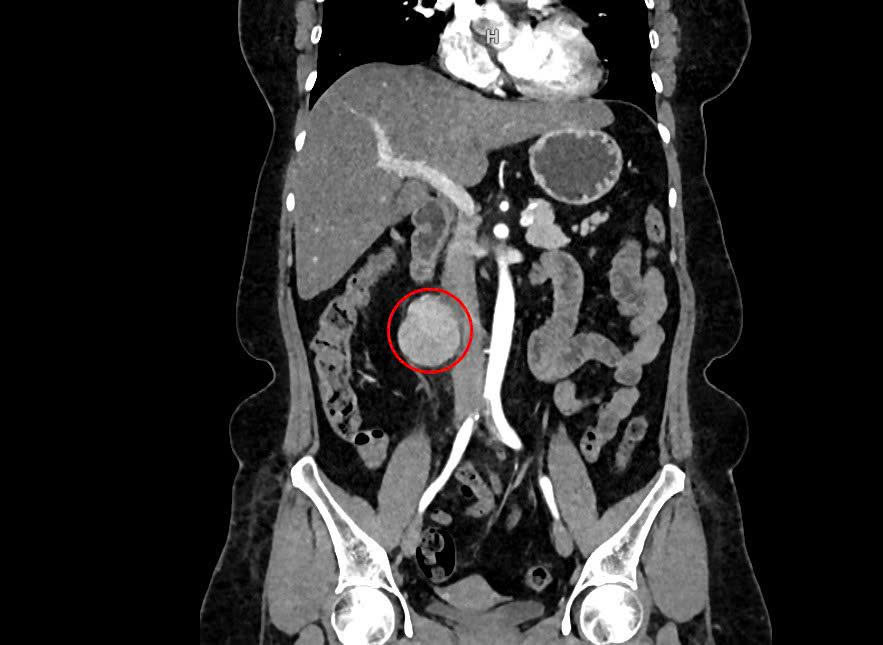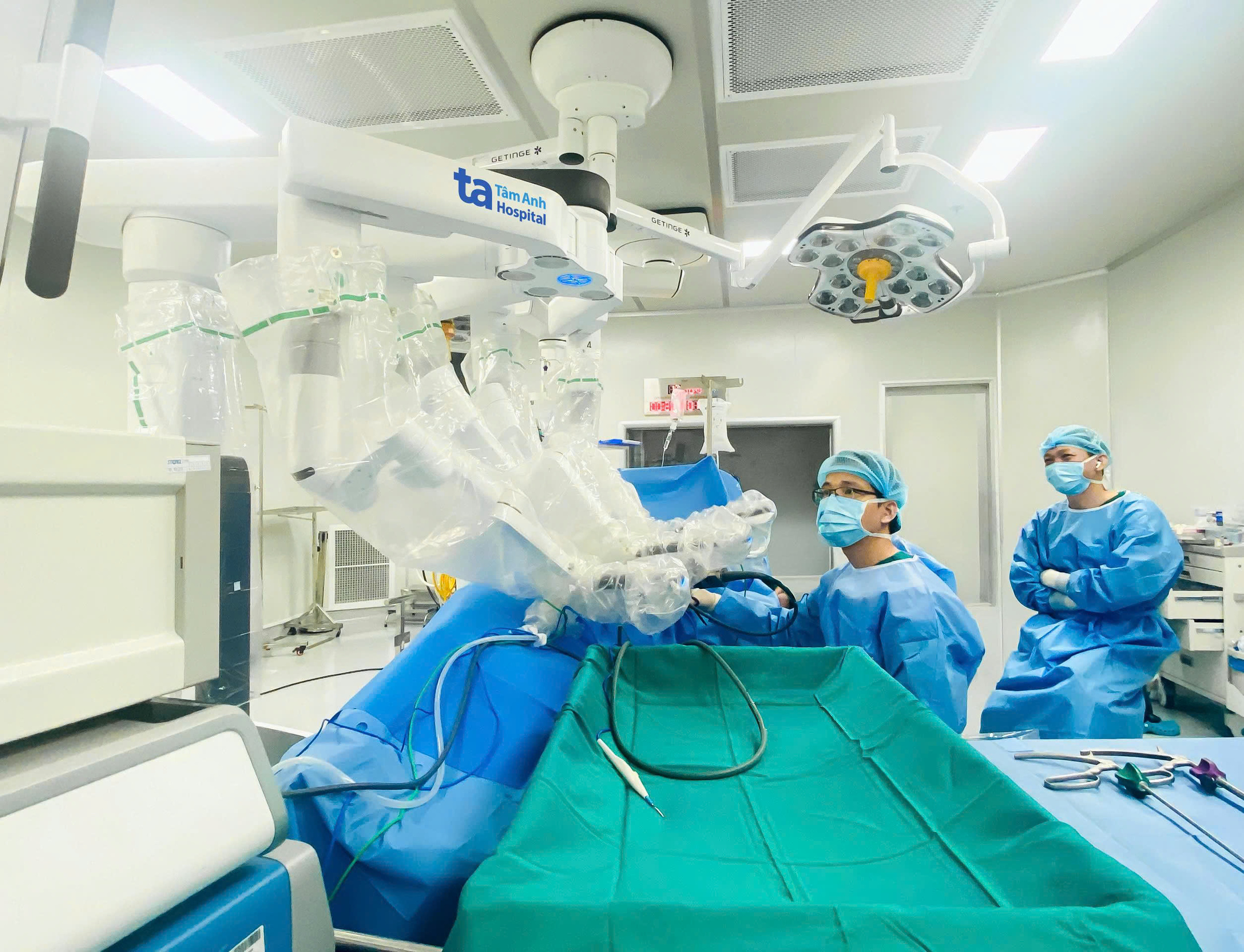Dr. Nguyen Tan Cuong, Deputy Head of the Urology Department at Tam Anh General Hospital in Ho Chi Minh City, explained that the tumor was precariously positioned in front of the iliopsoas muscle, adjacent to the inferior vena cava, and near the spine. It was suspected to have originated from the nerve sheath.
Retroperitoneal tumors, like Tan’s, often grow large before causing noticeable symptoms. Located deep within the body, these tumors may present with vague abdominal pain, a palpable mass, digestive issues, or unexplained weight loss. In Tan's case, the tumor was discovered incidentally during a routine check-up, as she experienced no pain or other symptoms.
 |
The 6 cm retroperitoneal tumor located near the patient's inferior vena cava. Photo: Tam Anh General Hospital |
According to Dr. Cuong, about 30% of retroperitoneal tumors are benign. However, surgical intervention is often necessary to determine the tumor's nature. As these tumors grow, they can compress or invade surrounding organs, impacting blood vessels and nerves.
The Da Vinci Xi robotic surgical system was chosen for its precision, allowing the surgical team to meticulously dissect and remove the entire tumor without damaging critical vascular structures or causing significant bleeding. Tan recovered quickly, able to eat, drink, and walk around her room the day after surgery. She was discharged 3 days later. Histological analysis confirmed the tumor to be a benign nerve sheath tumor.
 |
The Da Vinci Xi robot assisted surgeons in removing Tan's tumor. Photo: Tam Anh General Hospital |
Treatment for retroperitoneal tumors varies depending on factors such as whether the tumor is benign or malignant, its size and location, its proximity to other organs, and the patient's overall health. Benign tumors may be surgically removed or monitored if small and asymptomatic. For malignant tumors, complete surgical removal is the primary treatment, offering a low recurrence rate. Some cases may require adjuvant chemotherapy or radiotherapy.
Dr. Cuong recommends regular health check-ups for early disease detection. He also emphasizes the importance of adhering to post-operative follow-up appointments for timely detection of any complications or recurrence.
Ha Thanh
*The patient's name has been changed.












